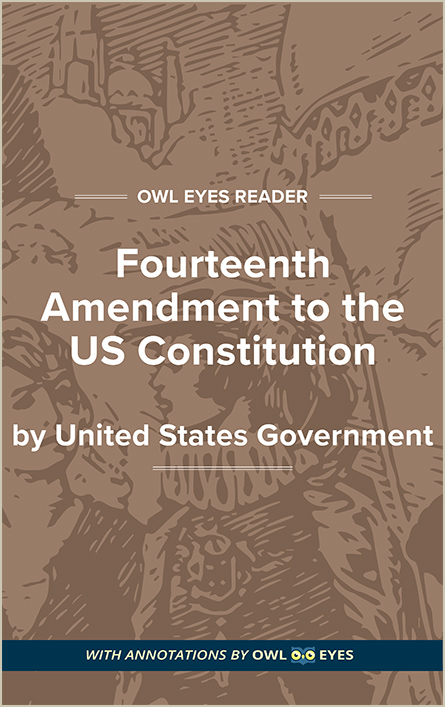- Annotated Full Text
- Literary Period: Reconstruction
- Publication Date: 1870
- Flesch-Kincaid Level: 16
- Approx. Reading Time: 2 minutes
Fourteenth Amendment to the US Constitution
The Fourteenth Amendment to the United States Constitution was proposed by Congress in 1866 and adopted in 1868. The central purpose of the amendment is to define American citizenship, to clarify both who receives it and what it offers. The Fourteenth Amendment is one of the three amendments passed in the aftermath of the Civil War, during the period known as Reconstruction. The United States’ transition away from slavery created a great deal of confusion around the status of the freed slaves. Many white Southerners sought to bring African Americans back into a state of servitude, a goal advanced by deeply entrenched racism and the passing of punitive “black codes” across the South. In the North, the federal government recognized the urgency with which they needed to protect African Americans. Having already passed the Thirteenth Amendment in 1865, thereby eradicating slavery and involuntary servitude, Republican lawmakers began fighting to grant full citizenship to all Americans, including African Americans. The road to ratification for the Fourteenth Amendment was long and contentious. Though Republican lawmakers in the Senate and House of Representatives pushed the amendment forward, they had to override President Andrew Johnson’s veto and strongarm the Southern states into ratifying it. These efforts paid off, and the Fourteenth Amendment has become one of the most frequently cited amendments in Constitutional history.
- Annotated Full Text
- Literary Period: Reconstruction
- Publication Date: 1870
- Flesch-Kincaid Level: 16
- Approx. Reading Time: 2 minutes

